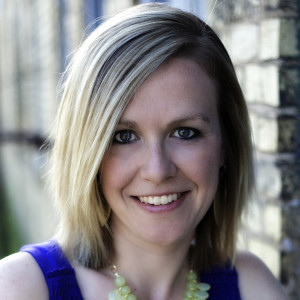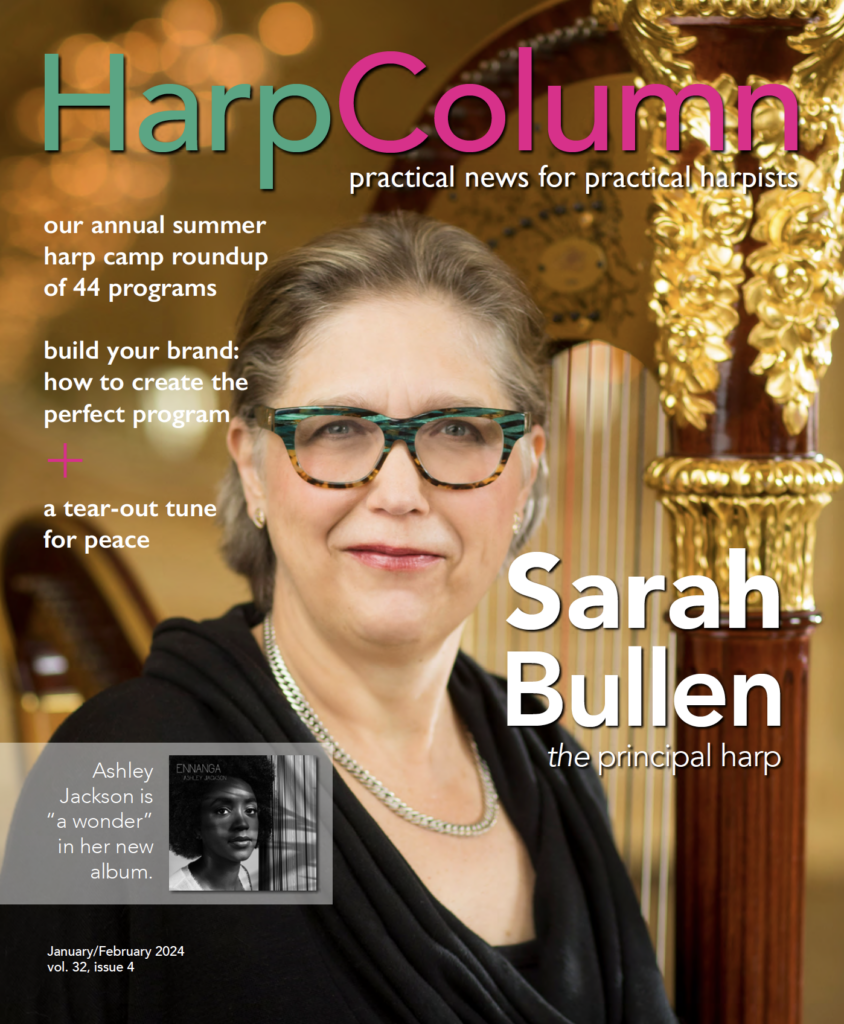Have you ever wondered how musicians perform at their best under extreme pressure on a big stage? How do the harpists with the best orchestras nail the Tchaikovsky cadenzas or the tricky Ravel parts or the fast-as-lightning Berlioz Symphonie Fantastique score? These harpists play the hardest rep on the biggest stages and make it look easy. They seem to have ice water in their veins, nerves of steel, seemingly unfazed by the difficulty of the music or the heat of the moment.
Every harpist who has ever played in an orchestra knows it’s a difficult job. We see the L.A. Philharmonic or listen to a recording of the Met and think, “I’d like to have whatever that harpist had for lunch.” What is their secret sauce?
There’s no secret if you ask Sarah Bullen, the recently retired principal harp of the Chicago Symphony Orchestra. Bullen is one of the best orchestral harpists of the last half century. After studying with Marcel Grandjany and graduating from Juilliard, Bullen started her orchestral career with the Utah Symphony in 1981. In 1987 she won the principal harp job with the New York Philharmonic. Ten years later Bullen moved from one of the country’s top orchestras to another after winning the principal harp audition with the Chicago Symphony Orchestra. She stayed with Chicago until her retirement in 2021. Bullen’s 40-year career with several of the premier orchestras in the United States was remarkable for its longevity and level of performance, but perhaps most of all for its transparency.
Bullen has been an open book—literally. In 1995, she published Principal Harp, Book 1—her personal markings, edits, and advice for the toughest cadenzas and solos in the harp rep. Along with the music, she gave tips for audition and performance success. The world of orchestral auditions had long seemed a little like the Great and Powerful Oz, shrouded in mystery, behind a curtain. Bullen’s first book tore down the curtain and threw open the answer book. She followed it with a second Principal Harp volume in 2008. Bullen recently partnered with our team at Harp Column Music to publish a new book of orchestral excerpts and professional advice—The Orchestral Harpist—available now at harpcolumnmusic.com.
Of course, winning an audition and playing in a top orchestra isn’t as simple as reading Bullen’s book and following her markings. “Anyone who is part of, let’s say, the top echelon of classical musicians, the expectation is perfection. You’re striving for perfection all the time,” Bullen declares in our interview with her in this issue. (See “Principled Principal” on pg. 14). That relentless pursuit of perfection can be fueled by ambition or fame or a desire to prove yourself. But first, there has to be a deep-seated love of music at your core.
Now you might be thinking, all right, I’ve got the love of the instrument, check. I have the commitment to the pursuit of perfection in my playing, check. How do I not crumble when I have a big solo on stage?
Bullen says the key is having consistent expectations for yourself. She tells a story about finding out she had to play the Capriccio espagnol cadenza on a “Live from Lincoln Center” broadcast, only a few months into her new job with the New York Phil. Unsure of how she would pull off such a big performance under the pressure of a live broadcast, she says, “I remember telling myself, ‘You’re in a gymnasium in southern Utah playing a school concert. It’s the same thing. The expectation is the same.’ You want perfection, or as close to it as possible. Obviously, there’s a huge difference between venues, but my expectation for myself was the same. I think this goes to the mindset and integrity of a committed, serious classical musician. I don’t care if you’re in a community orchestra or the New York Philharmonic, you always bring your best to any performance.”
That is what professionals do—they bring their best, no matter the circumstances. They are committed to their craft, not to applause or social media likes or awards. Turns out it is never ice water, but integrity and commitment that courses through the veins of the best performers. •







